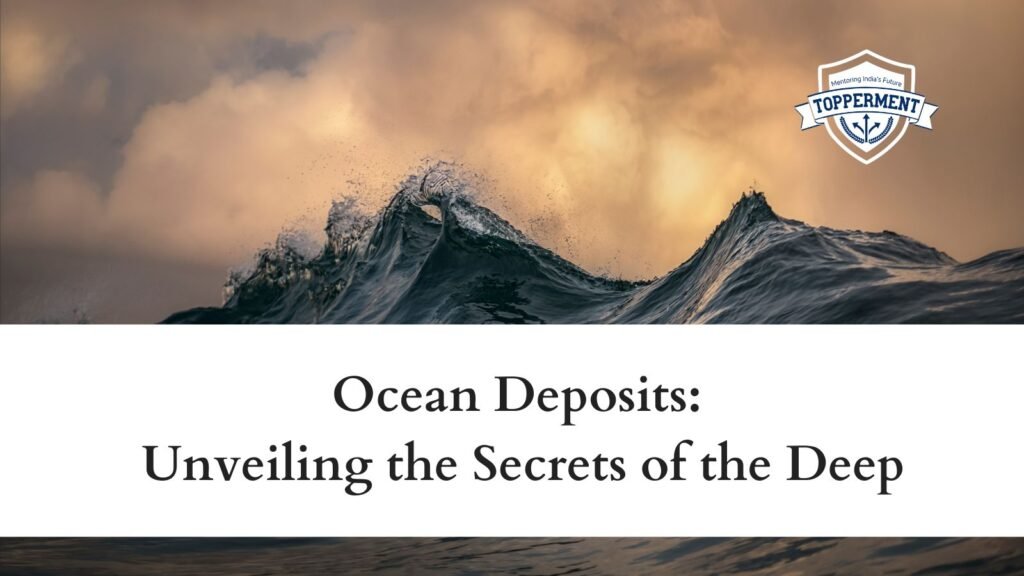The world’s oceans are vast bodies of water that cover about 71% of our planet’s surface. They are not only home to a diverse range of marine life but also hold valuable treasures beneath their depths. Ocean deposits, also known as marine sediments, are the accumulation of various materials on the ocean floor
Types of Ocean Deposits:
There are primarily four types of ocean deposits:
- Terrigenous Deposits: These deposits consist of land-derived materials such as sand, silt, and clay, transported by rivers and wind and eventually settling in the ocean.
- Biogenous Deposits: These deposits are composed of the remains of marine organisms like shells, coral reefs, and microscopic plankton, which accumulate over time.
- Hydrogenous Deposits: These deposits form through chemical reactions in seawater, resulting in the precipitation of minerals like manganese nodules, phosphorites, and evaporites.
- Cosmogenous Deposits: These rare deposits include extraterrestrial materials like meteorites and cosmic dust that have fallen into the ocean
Factors Affecting Ocean Deposits:
Several factors influence the distribution and composition of ocean deposits:
- Climate and Weathering: The amount and type of sediment entering the ocean depend on climate conditions and the weathering of rocks on land.
- Ocean Currents and Waves: The movement of ocean currents and waves plays a significant role in transporting and redistributing sediments across the ocean floor.
- Biological Activity: Marine organisms, particularly those with hard shells or skeletons, contribute to the formation of biogenous deposits.
- Geological Processes: Tectonic activity, volcanic eruptions, and underwater landslides can also impact the deposition of materials on the ocean floor
Importance of Ocean Deposits:
Ocean deposits have immense scientific and economic significance:
- Climate Records: By studying the composition and layers of ocean sediments, scientists can reconstruct past climate conditions, revealing important insights into Earth’s history and climate change patterns.
- Resource Potential: Some ocean deposits contain valuable resources such as oil, gas, minerals, and rare metals. Exploring and extracting these resources can contribute to energy production and economic growth.
- Environmental Monitoring: Ocean deposits can serve as indicators of pollution levels, including heavy metal contamination and plastic accumulation, helping scientists assess the health of marine ecosystems
Ocean deposits are a window into the mysteries of the deep sea, revealing the Earth’s past, present, and even potential future resources. From climate records to resource exploration and environmental monitoring, the study of these deposits plays a crucial role in advancing our knowledge of the oceans
Also Read
- What Is New World Order? | UPSC International Relations
- What Are New Money Aggregates? | UPSC Economy
Follow Us For More Content On:
https://www.instagram.com/topperment/


